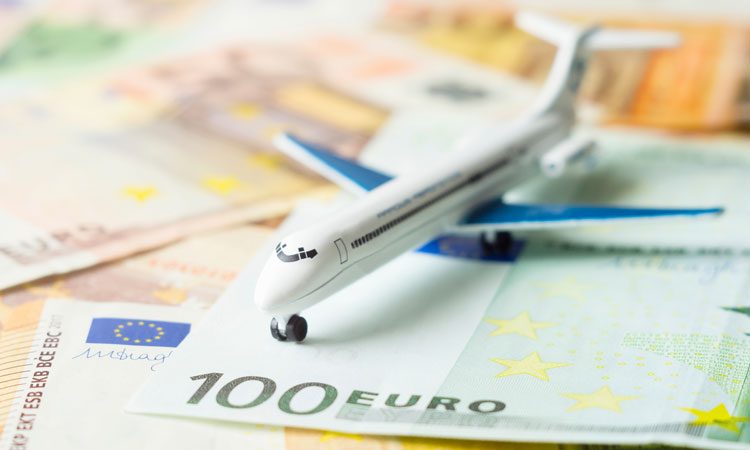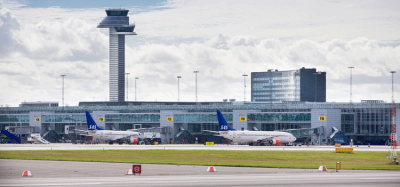Stronger regulation of powerful airports needed to protect consumers
- Like
- Digg
- Del
- Tumblr
- VKontakte
- Buffer
- Love This
- Odnoklassniki
- Meneame
- Blogger
- Amazon
- Yahoo Mail
- Gmail
- AOL
- Newsvine
- HackerNews
- Evernote
- MySpace
- Mail.ru
- Viadeo
- Line
- Comments
- Yummly
- SMS
- Viber
- Telegram
- Subscribe
- Skype
- Facebook Messenger
- Kakao
- LiveJournal
- Yammer
- Edgar
- Fintel
- Mix
- Instapaper
- Copy Link
Posted: 16 July 2019 | International Airport Review | No comments yet
IATA concurs with the EC that tighter economic regulation could see the full benefits of the Airport Charges Directive being fulfilled, protecting consumers from the power of the major airports.


The International Air Transport Association (IATA) has welcomed the European Commission’s evaluation of the Airport Charges Directive (ACD) which highlights the need to further strengthen the Directive to protect consumers.
Nearly 60 per cent of passengers in Europe pass through just 25 airports. Many airports are able to charge prices that would otherwise not be achieved in a competitive market. The Commission’s evaluation confirms that further provisions are required to establish a common framework to regulate airport charges at EU airports. The report concludes that the existing Directive has had a positive impact on the airport charges setting process, but that there is a clear case for further strengthening it to fully achieve its objectives1.
“The Airport Charges Directive benefits consumers. And the Commission has rightly concluded that there is scope for the Directive to be even more effective, if consumer interests are protected by strong economic regulation of airports with significant market power,” said Rafael Schvartzman, IATA’s Regional Vice President for Europe.
Three key lessons can be drawn from the Commission’s evaluation:
- Consumers need to be at the heart of the issue. The evaluation confirms that airlines operate in a highly competitive market and that reductions in airport charges are passed through to consumers2. Effective economic regulation of airports with significant market power is a vital element in ensuring the economic and social benefits of air transport.
- The effectiveness of the ACD depends on stronger powers for regulators. The evaluation is clear that Independent Supervisory Authorities (ISAs) should have independence and a strong mandate to protect consumers with effective economic regulation3.
- The risk of airports abusing their significant market power remains, as demonstrated in cases where market power assessments have been conducted, for example in Ireland, the Netherlands and the UK.4
“The next step is to see an impact assessment of the ACD by the European Commission to analyse the best approach to fully achieve the objectives that current EU legislation has not been able to accomplish. A strengthened ACD and targeted economic regulation will play a major role in protecting consumers and building a more efficient air transport system, providing greater connectivity across Europe, with all the benefits that brings,” said Schvartzman.
References
(Citations from the report)
- Page 86: “The evaluation has highlighted the possible scope for the Directive to have been more efficient had it been better targeted at airports with significant market power.”
- Page 5: “In Europe, the market for the provision of air passengers and air cargo services is generally considered competitive. Therefore it is expected that increases in airport charges or conversely lower airport charges would be, at least in part, passed through by airlines to passengers or freight customers.”
- Page 85: “The evaluation has found that leaving to the Member States the decisions on the detailed requirements regarding the independence, powers and duties of the ISAs has in practice impacted the effectiveness of the Directive in addressing the risk of airports being able to extract prices that would not be achieved in a competitive market.” Page 45: “The external support study concluded that a number of ISAs, including those supervising larger aviation markets such as Germany, Spain and ENAC in Italy, have limited powers.”
- Page 33-34: “These assessments found significant market power for Amsterdam Schiphol airport, Dublin airport, as well as for London Heathrow and London Gatwick airports in the market for the provision of services to passenger airlines. For these airports the national authorities came to the conclusion that ex ante economic regulation going beyond the Directive’s requirements is justified because of the risk of misuse of the significant market power of the respective airport assessed.”
Related topics
Related organisations
European Commission (EC), International Air Transport Association (IATA)

















